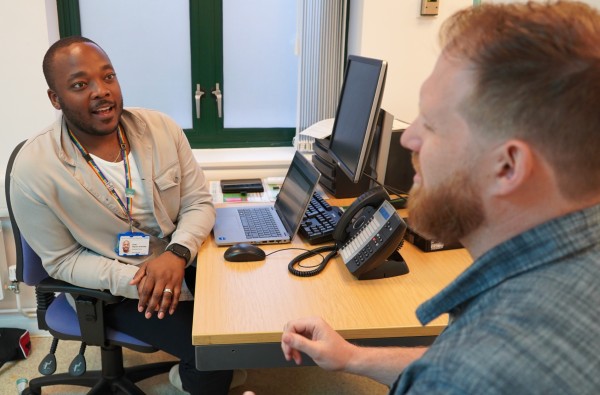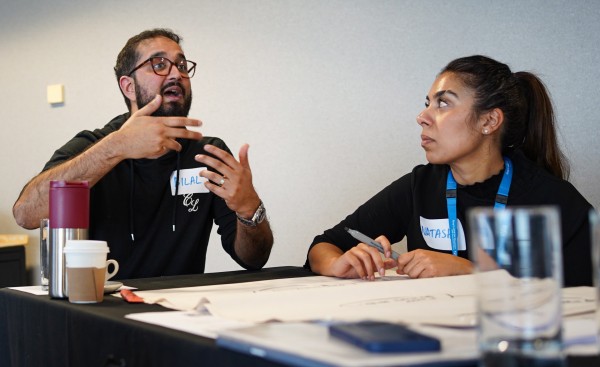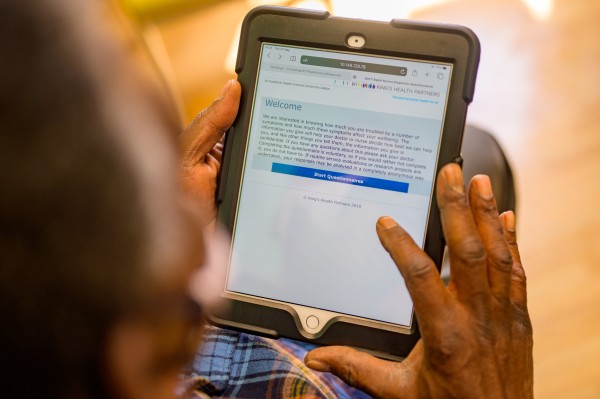A growing and diverse body of evidence demonstrates that our health is influenced by a complex interaction between physical, emotional, social, and environmental factors.
Delivering integrated and high-quality mind and body care is crucial and it has been evidenced to improve health outcomes, patient experience, quality of life and reduce costs.
The Mind & Body programme aims to join up physical and mental health care across the partnership and beyond through several projects, and education and training initiatives. As part of this, The Mind & Body Improvement Network has been established to:
- Build upon and evolve the pre-existing Mind & Body Champions Network to support like minded individuals to evolve their knowledge, practice and service;
- Define what ‘best practice’ mind and body care looks like.
We aim to create impactful quality improvements at both local and national levels, and ultimately enhance patient care and outcomes, promote wellbeing, and reduce health inequalities for all.
The Improvement Network provides members with a platform to collaborate, innovate and deliver integrated mental and physical healthcare across the partnership and beyond. The network is hosted on the collaborative online platform FutureNHS and offers individuals, services and organisations with resources, links to training and events, and a space to start discussions and share best practice with other Mind & Body Champions, for the benefit of patients.
All individuals who join our network become Mind & Body Champions.
The Mind & Body Improvement Network provides several benefits for members including:
-
Support for organisations, services, and individuals to identify priority concerns and challenges related to integrated mind and body care, and work towards their common goals in an environment of collaboration, innovation, and support.
- Help for services to improve patient experiences, quality of care, and health outcomes by supporting changes in practice which focus care on the patient and their needs, rather than their diagnosis or condition.
- The provision of assurance for patients, their families, the public, and regulators that there is a focus on delivering integrated care in accordance to best practice, national guidelines, and regulations.
Joined up physical and mental healthcare can help people to better manage their different conditions and improve their health outcomes. However, there remains significant unmet need. Many people with multiple conditions do not receive the care they need and deserve. We recognise there is a substantial amount of research, clinical progress, and a growing social movement that signals the importance of integrated care. However, there is no consistent framework that explains how mind and body care should be delivered and what good practice looks like.
Without a clear framework, how do we assure patients and their families that they are receiving integrated 'mind and body' care? There is no agreed ‘bar’ or standard for integrated care in the UK.
We want to change that. If we are to offer all patients and service users the best possible integrated care, we have to understand what this means in practice.
Our framework offers a defined set of criteria reflecting the expected attributes of holistic mind and body care.
Anyone who wants to advocate for the integration of mental and physical healthcare or works in these settings is welcome to join our Improvement Network and become a Mind & Body Champion, this includes organisations in south east London and beyond. We are open to a wide range of staff representing all organisational areas. Whether you are clinical or non-clinical, junior to senior, everyone is welcome to join! We are also keen for our champions to expand to practitioners in primary and social care and other organisations across south and south east London.
Our Mind & Body Champions are advocates for the importance of treating mental and physical health as one. Our champions help to identify and support the health needs of our patients and service users so that they can be aided with the most appropriate treatment.
The role of champions is simple:
- Increase the awareness of mind and body care, by making the most of the resources and training available to build knowledge.
- Advocate for mind and body care where possible by educating your teams and colleagues.
- Practice better mind and body care by building skills through the available e-learning and in person courses to continually improve yourself and your team's mind and body approach to health.
- Lead change for better mind and body care and where possible work with us to innovate for better care.
The Improvement Network provides members with a platform to collaborate, innovate and deliver integrated mental and physical healthcare across the partnership and beyond. The network is hosted on the collaborative online platform FutureNHS and provides individuals, services and organisations with resources, links to training and events, and a space to start discussions and share best practice with other Mind & Body Champions, for the benefit of patients.
If you are interested in becoming a Mind & Body Champion, contact mindandbody






